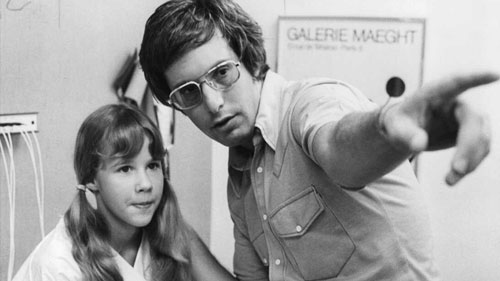Film director William Friedkin, who made his mark on Hollywood in the 1970s with his Oscar-winning “The French Connection” and the supernatural horror movie “The Exorcist,” died Monday in Los Angeles at 87, according to multiple reports.
His death was confirmed by his wife, former producer and studio head Sherry Lansing, the Hollywood Reporter said.
Friedkin was part of a new generation of Hollywood filmmakers that also included Peter Bogdanovich, Francis Ford Coppola, and Hal Ashby.
“The French Connection,” released in 1971, was Friedkin’s first big-budget movie. It was based on Robin Moore’s best-seller about two real-life New York City narcotics cops on the trail of international heroin dealers and was a critical and commercial success.
However, the film has recently come under scrutiny and faced censorship in various regions. The censorship stems from concerns over the portrayal of drug use, violence, and certain racial stereotypes. Some critics argue that the film’s content reflects outdated societal norms that are no longer acceptable. As a result, certain scenes have been edited or removed entirely in some broadcasts and streaming platforms, leading to heated debates among film enthusiasts and scholars.
Friedkin himself had expressed mixed feelings about the censorship, acknowledging the need for sensitivity but also defending the artistic integrity of the film. The controversy has reignited discussions about the balance between artistic freedom and social responsibility in cinema.
Friedkin earned an Academy Award for directing, and the film won four other Oscars, including Best Picture and Best Actor for Gene Hackman. The movie is also remembered for featuring one of the most thrilling car chases in cinema history.
“I never considered myself the great American anything. Not then and not now. I consider myself just another member of the crew, the highest paid member of the crew,” Friedkin once told The Los Angeles Times in 1989.
“Winning the Academy Award was an enormous honor. But I thought I had won it prematurely, that I hadn’t paid enough dues at that point.”
For his next project, Friedkin chose another best-seller — William Peter Blatty’s “The Exorcist.” The story focuses on a young girl, played by Linda Blair, who is believed to be possessed by the devil. Released in 1973, it became one of the highest-grossing films of all time and earned 10 Academy Award nominations, including one for best director.
His other movies included 1977’s “Sorcerer,’ ‘1985’s “To Live and Die in L.A.,” 2006’s “Bug,” and 2000’s “Rules of Engagement.”
Friedkin was born on Aug. 29, 1935, in Chicago. After seeing the movie “Citizen Kane” as a boy, he became fascinated with movies and began working for WGN-TV immediately after high school.
He started his directorial career doing live television shows and documentaries, including “The People vs. Paul Crump,” which won several awards. Friedkin also directed one of the last episodes of “The Alfred Hitchcock” Hour in 1965.
In 1967 he moved into film directing with the Sonny-and-Cher musical “Good Times,” and followed up with “The Birthday Party” (1968), an adaptation of Harold Pinter’s play.
Friedkin also directed “The Night They Raided Minsky’s” (1968), a comedy about an innocent Amish girl who becomes a burlesque dancer in 1920s New York City.
He received a star on the Hollywood Walk of Fame in 1997.
Friedkin was married to newscaster Kelly Lange and actresses Lesley-Anne Down and Jeanne Moreau. He is survived by his fourth wife, Lansing, and two sons.

